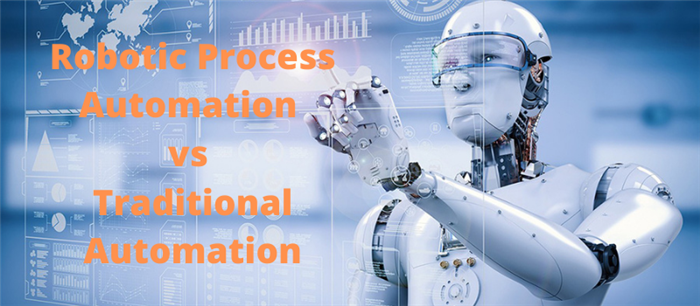Automation has broken all the records of mankind's imagination as to what could be achieved and how! Automation has resulted in developing such kinds of machines and software, which has proved to be a boon towards mankind as they perform tasks more accurately than humans.
Accompanied by Information Technology and physics for the Automation of industry made things much simpler and quicker than what the origin of humans could have ever thought. These modern times we find today stand on the towers of these industrial revolutions, which have taken this globe to our fingertips. The digital revolution changed the way we relate to our individuality. Not only our personality but everything centered around it could be transformed is privacy, the concept of control, our own life, business growth, and everything could be new when digitalization gets over entirely. Every small feeling that time is about good change for the better.
So what exactly is robotic process automation and traditional Automation? How are these two different from each other? What would be the significant differences? We shall Look upon this in this article.
What is RPA and Traditional Automation?
Robotic Process Automation, also known as RPA, is a software technology developed with the help of Artificial Intelligence (AI) and Machine learning technology, which designs Robot (bots) which helps in carrying out easy day-to-day tasks independently without any human interference.It does it's assigned work independently, which previously required humans to perform manually. In comparison, traditional Automation is the Automation of all automating routine tasks. It integrates device integration at a database or infrastructure level. This requires less human involvement.
RPA vs Traditional Automation
The major difference between Robotic Process Automation and Traditional Automation are given below-
|
Points |
Traditional Automation |
Robotic Process Automation |
|
Customization |
Customizations are required in the IT structure |
No customizations are required in IT structures |
|
Programming skills |
The users need to know programming skills will operating traditional Automation |
The users need not to know programming skills in case of RPA as it allows easy to use flow charts for its functionality. |
|
Speed/time |
Traditional Automation requires more time and effort. |
RPA comparatively requires less time and effort and gives improvements instantly. |
|
Human actions |
Traditional Automation cannot mimic human actions and only does pre-programmed tasks. |
RPA mimics human actions to complete the said task. |
|
Cost |
Traditional Automation is cheaper in the first stage but keeps on increasing in the long run |
RPA is comparatively expensive at the first stage, but eventually in the long run, it has been proven to be beneficial. |
|
Implementation |
Traditional Automation generally takes several months for implementation and is a timely process. |
RPA comparatively takes less time for implementation as it is process-driven. |
|
Updation and Maintenance |
Maintenance and updation of Traditional Automation are quite tough as it mandates the users to change various scripts. |
On the other hand, RPA is easy to update and maintain due to its simplicity. |
Conclusion
Traditional Automation and Robotics process automation have their own work and are still successfully running in various industries, companies, and businesses. Both Automation has its own pros and cons to it. It totally depends upon a company or a business on which Automation they would like to implement.
Find the below Robotics Process Automation certification courses
-
Robotic Process Automation (RPA) Certification Courses
-
Robotic Process Automation (RPA) – Automation Anywhere
-
Robotic Process Automation with Blue Prism
-
Uipath: RPA Design and Development v2
-
Microsoft Power Automate
-
Microsoft PowerApps
Enquire Now












